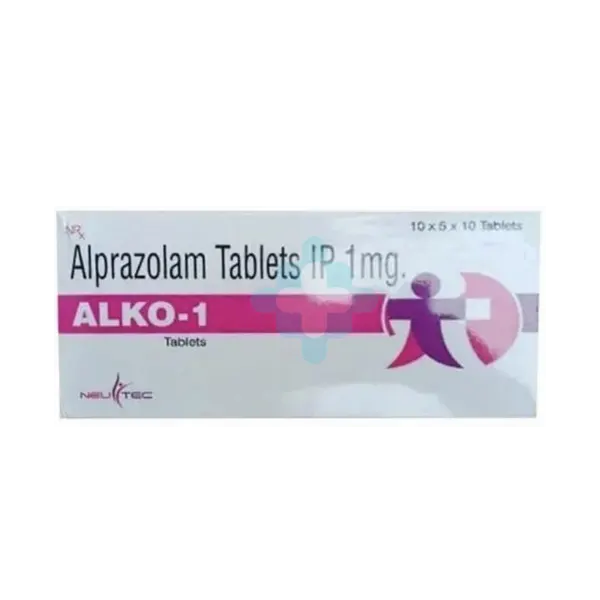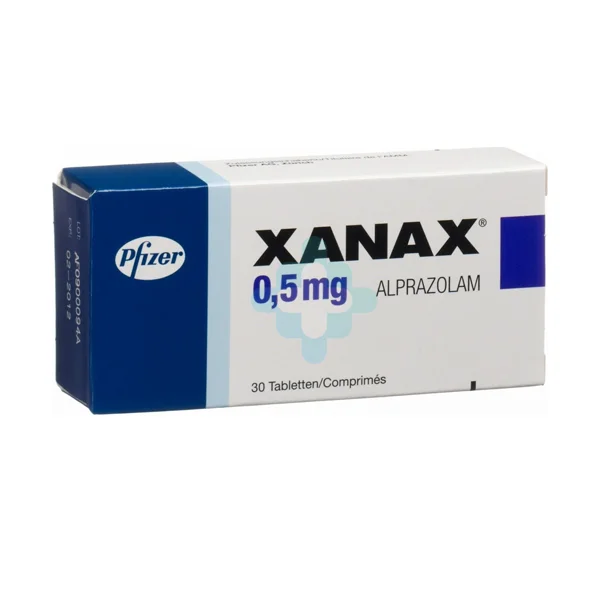Anxiety
Understanding Alprazolam: Uses, Dosage, and Side Effects
Alprazolam
Physicians prescribe alprazolam, which belongs to the benzodiazepine class of drugs, primarily to treat anxiety disorders, panic disorders, and anxiety associated with depression. This medication operates by enhancing the effects of a neurotransmitter called gamma-aminobutyric acid (GABA) in the brain, resulting in a calming effect on the central nervous system.
Alprazolam is an effective medication for managing anxiety disorders and panic attacks. However, it should be used cautiously and under medical supervision to minimize the risk of dependency and side effects. Consultation with a healthcare provider is essential for determining the appropriate dosage and duration of treatment based on individual needs and circumstances.
Uses
- Anxiety Disorders: Alprazolam is effective in reducing symptoms of generalized anxiety disorder (GAD), social anxiety disorder, and other forms of anxiety.
- Panic Disorders: It helps alleviate symptoms of panic attacks, such as sudden feelings of intense fear or impending doom, rapid heart rate, and sweating.
- Anxiety with Depression: Alprazolam may be prescribed to manage anxiety symptoms in individuals with depression.
Dosage and Administration
The dosage of alprazolam varies depending on the condition being treated, the severity of symptoms, and individual response to the medication. Patients typically take it orally in tablet form, with dosages ranging from 0.25mg to 2mg, depending on their specific needs. Healthcare providers may adjust the dosage based on the patient’s response and tolerance to the medication.

Side Effects
Alprazolam may commonly cause side effects such as drowsiness, dizziness, blurred vision, headache, confusion, and coordination difficulties. Moreover, long-term use or high doses can increase the risk of adverse effects and dependency. Therefore, it’s crucial to use alprazolam only as prescribed by a healthcare professional and to avoid sudden discontinuation, as it may lead to withdrawal symptoms.
Alprazolam IP 1mg
Alprazolam IP 1mg, meeting international pharmacopoeia standards, is a prescription medication primarily used to treat anxiety disorders, panic disorders, and anxiety associated with depression. It belongs to the benzodiazepine class of drugs and enhances the effects of a neurotransmitter called gamma-aminobutyric acid (GABA) in the brain, which induces a calming effect on the central nervous system.

Purpose
Alprazolam IP 1mg aims to comprehensively treat anxiety disorders, panic episodes, and anxiety linked with depression. Its mechanism involves boosting GABA neurotransmitter activity, crucial for soothing the central nervous system.
Dosage
Healthcare providers individualize Alprazolam IP 1mg dosage based on the severity of the condition and patient response. Administered orally, typically as a tablet, it can be a short- or long-term therapy component, tailored to the patient’s therapeutic needs.
Administration
Patients should strictly follow healthcare provider instructions for administering Alprazolam IP 1mg. Compliance with the prescribed dosage and schedule is vital for optimal efficacy and minimizing potential side effects or dependency risks.
Side Effects
Common side effects of Alprazolam IP 1mg include drowsiness, dizziness, blurred vision, headaches, confusion, and coordination issues. Prolonged or improper use may lead to tolerance, dependency, and withdrawal symptoms upon abrupt cessation.
Precautions
Xanax 0.5mg (Alprazolam)
Xanax 0.5mg, also known by its generic name Alprazolam, is a medication used to treat anxiety disorders, panic disorders, and anxiety associated with depression. It belongs to the benzodiazepine class of drugs and works by enhancing the effects of gamma-aminobutyric acid (GABA), a neurotransmitter that helps calm the central nervous system.

Purpose
Side Effects
Common side effects of Xanax 0.5mg include drowsiness, dizziness, blurred vision, headaches, confusion, and coordination difficulties. Prolonged or improper use can lead to tolerance, dependency, and withdrawal symptoms if abruptly discontinued.
